

— Products —
 Consumer hotline +8618073152920
Consumer hotline +8618073152920 WhatsApp:+8615367865107
Address:Room 102, District D, Houhu Industrial Park, Yuelu District, Changsha City, Hunan Province, China
All products
Soil temperature sensors are vital tools for monitoring and understanding soil thermal properties, which have significant implications for agriculture, ecology, geology, and environmental science. These sensors are designed to measure the temperature of the soil at various depths, providing valuable data for irrigation management, crop growth, soil health assessment, and climate studies. It is an important tool for farmers, gardeners, and researchers to monitor soil condition···
Tel/WhatsApp:+8615367865107
Email:Arvin@niubol.com +Nearly 100 partner companies in more than 68 countries. We are committed to providing high-quality, practical products to meet your needs and help you solve problems. Our products comply with international standards and are certified with ISO, CE and RoHS.Product Details
Soil temperature sensors are vital tools for monitoring and understanding soil thermal properties, which have significant implications for agriculture, ecology, geology, and environmental science. These sensors are designed to measure the temperature of the soil at various depths, providing valuable data for irrigation management, crop growth, soil health assessment, and climate studies.
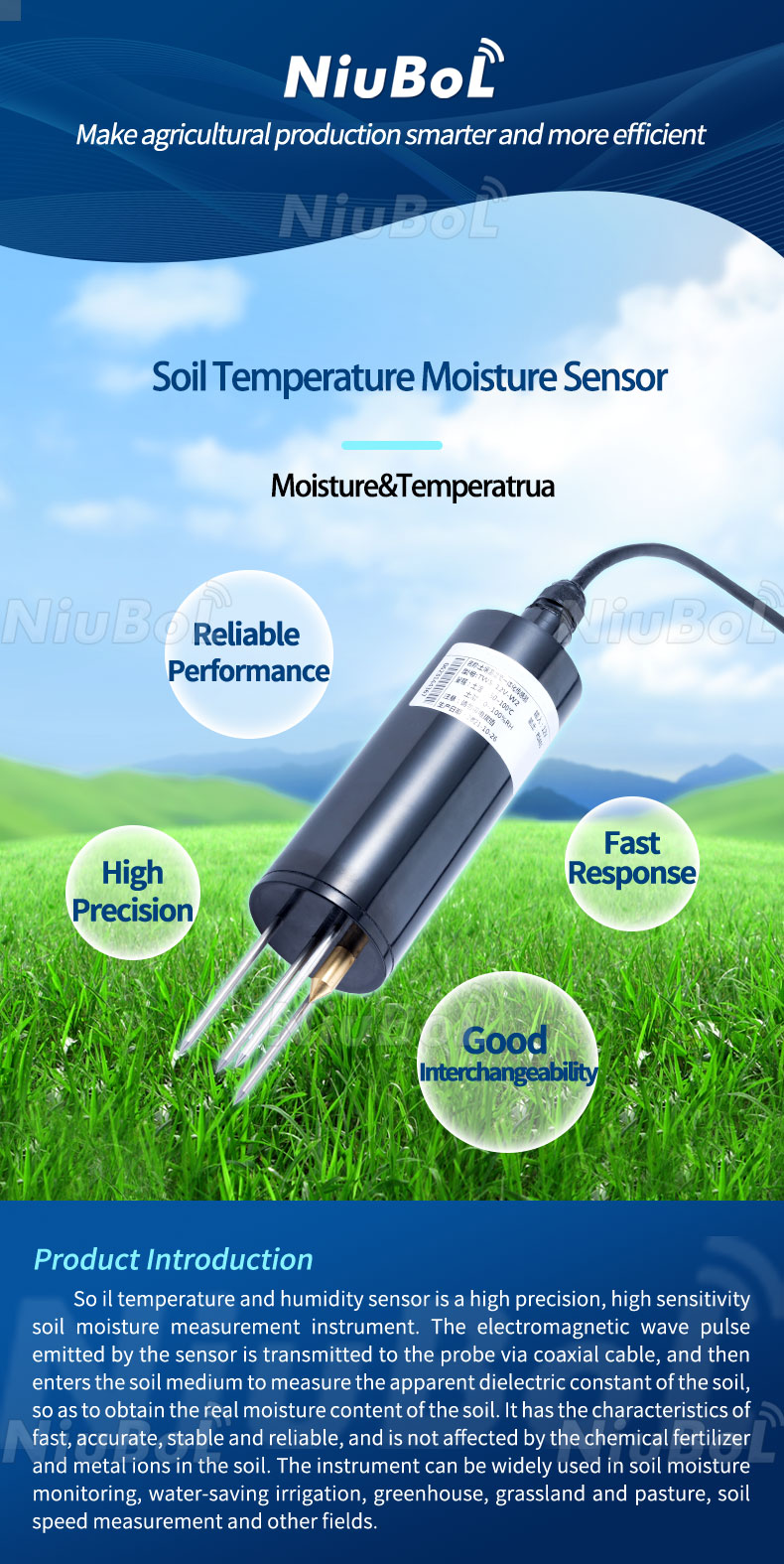
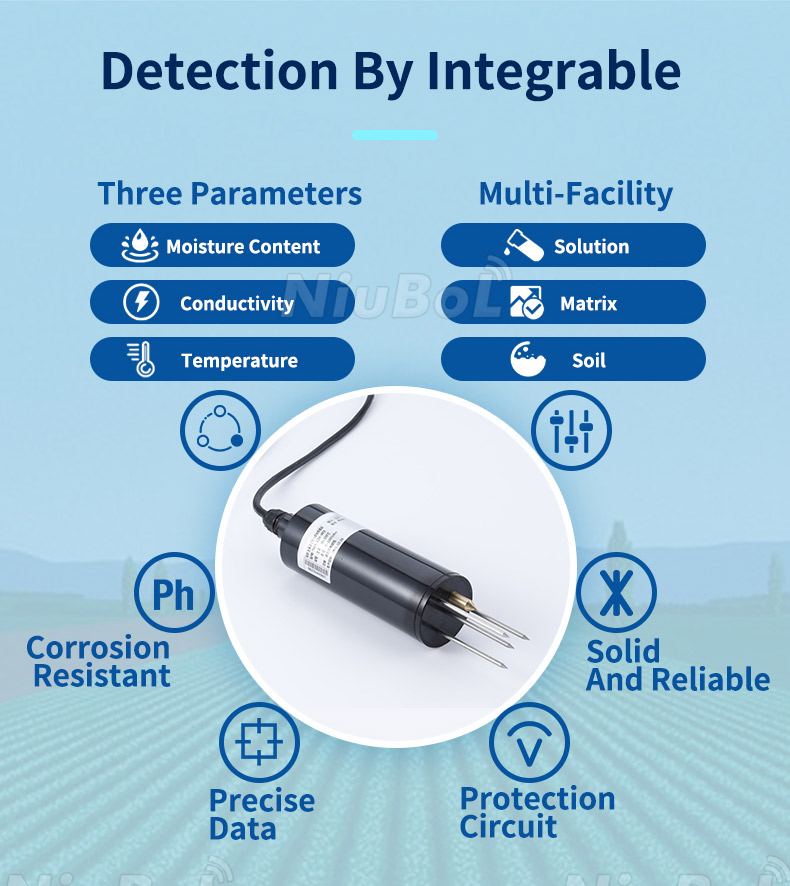
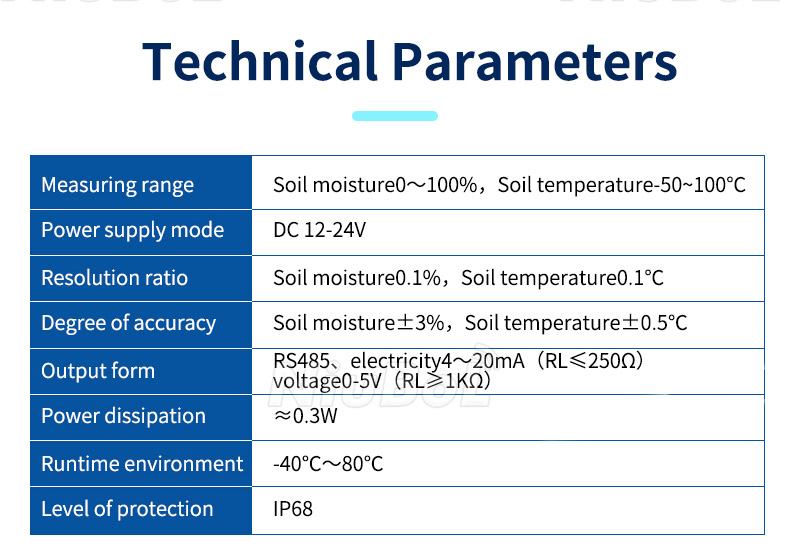
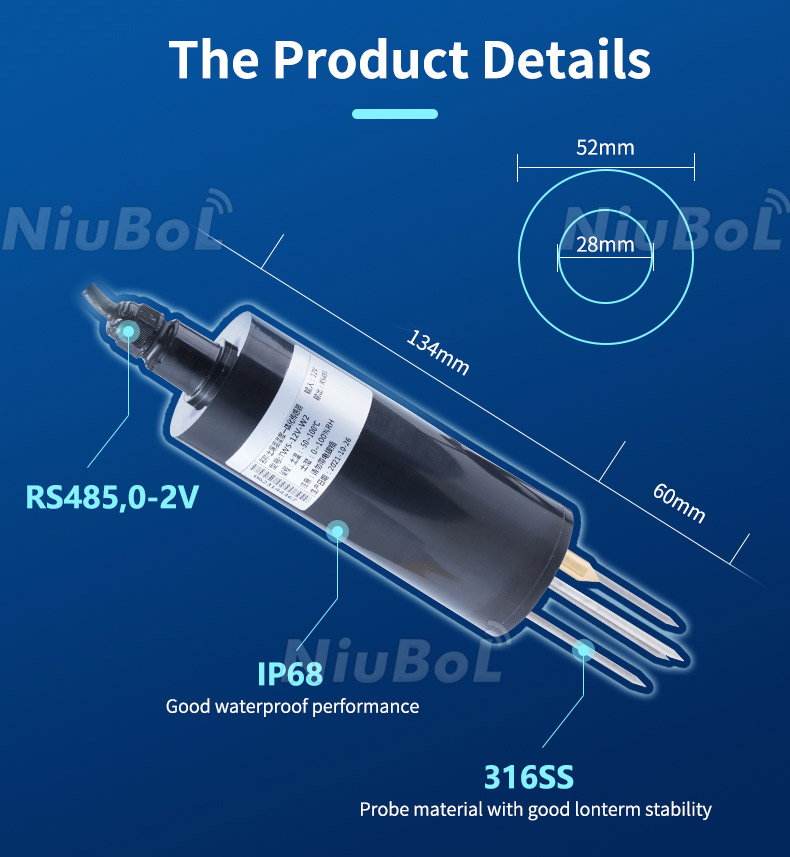
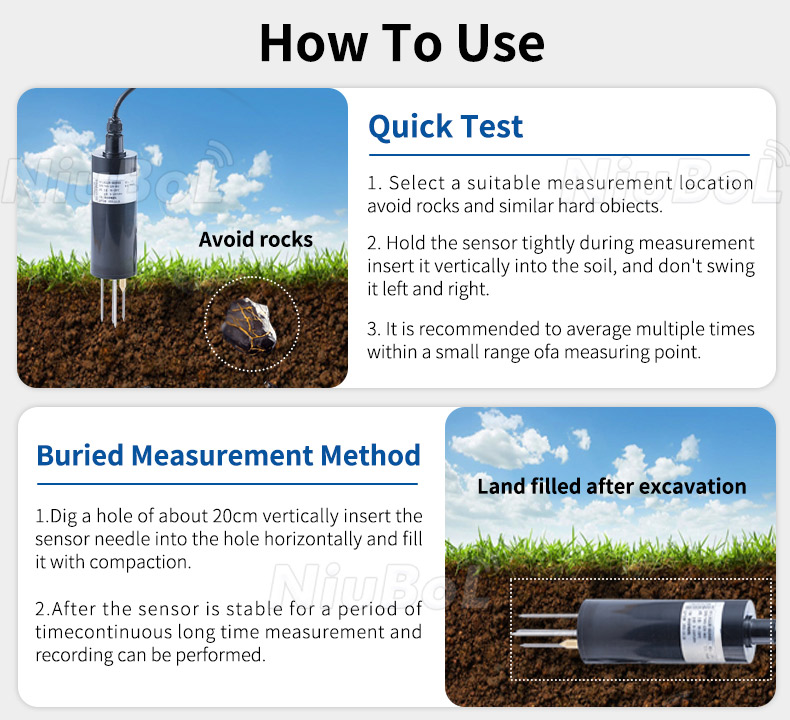
A soil temperature sensor is an electronic device designed to measure the temperature of the soil.It is an important tool for farmers, gardeners, and researchers to monitor soil conditions, which can significantly impact plant growth and overall agricultural productivity.Here are some key points about soil temperature sensors:
1.Functionality: Soil temperature sensors are typically placed within the soil at a specific depth, where they measure the temperature continuously or at regular intervals.The data collected can be used to determine the optimal time for planting, the need for irrigation, or the risk of frost.
2.Types of soil temperature sensors: There are different types of soil temperature sensors available, including wired and wireless options. wired sensors require physical connections to a data logging system or controller, while wireless sensors can transmit data to a receiver or a smartphone application wirelessly.
3.Importance: Soil temperature is a critical factor that affects soil biochemistry, nutrient availability, seed germination, and root growth.By monitoring soil temperature, farmers and gardeners can make informed decisions to optimize their crop production and manage resources efficiently.
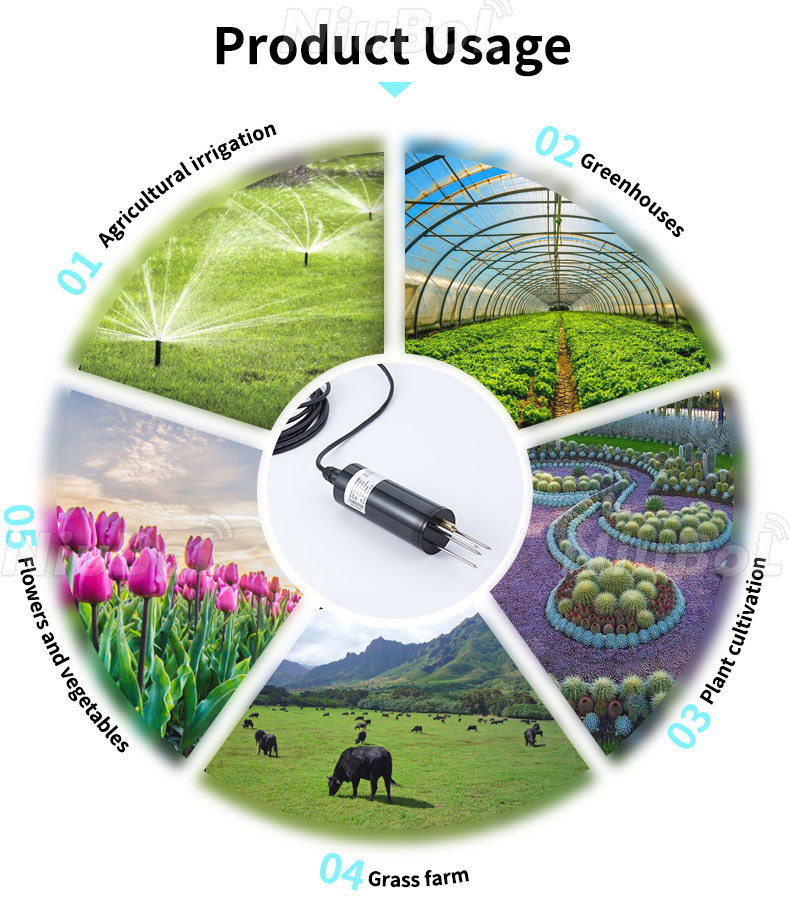
4.Usage: Soil temperature sensors are widely used in precision agriculture, horticulture, and research studies.They help in understanding the microclimate conditions below the soil surface, which is essential for sustainable farming practices.
5.Installation soil temperature sensors: These sensors need to be installed at the desired depth in the soil, where they can provide accurate and reliable temperature readings.The installation process may vary depending on the type of sensor and the soil conditions.
6.Data Logging and Analysis: The temperature data collected by the sensors can be logged and analyzed to identify patterns and trends.This information helps in making timely decisions related to farming operations, such as scheduling irrigation, applying fertilizers, or controlling pests.
Overall, soil temperature sensors play a crucial role in modern agriculture and environmental monitoring by providing valuable insights into soil conditions.They assist farmers and researchers in optimizing their practices, conserving resources, and promoting environmental sustainability.
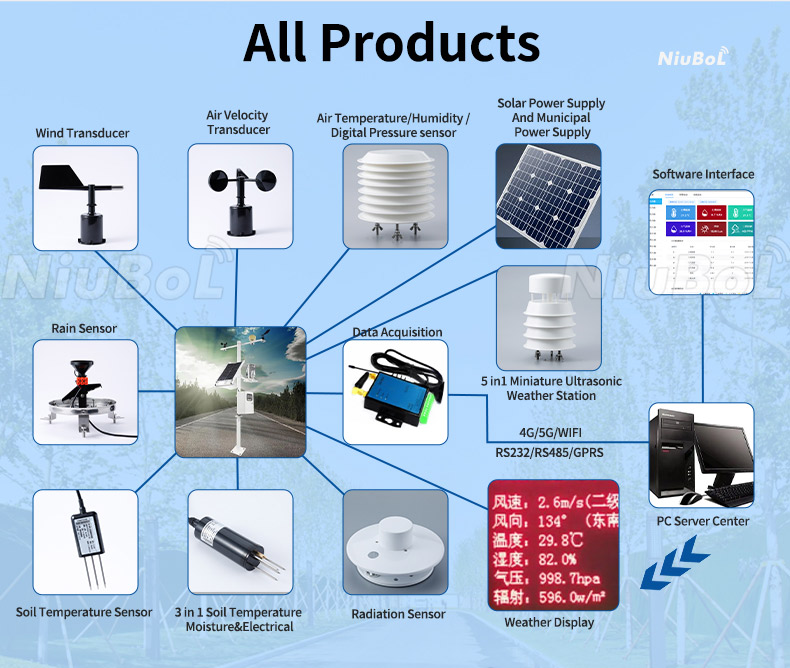
When selecting a soil temperature sensor, consider the following factors:
- Depth of Measurement: Determine the depth range over which you need to measure soil temperature.
- Accuracy and Precision: Assess the required level of accuracy and precision for your specific applications.
- Response Time: Consider the desired response time for capturing rapid temperature changes in the soil.
- Environmental Conditions: Ensure the sensor can withstand the local soil conditions, including moisture levels and potential exposure to chemicals and fertilizers.
- Data Logging and Transmission: Evaluate the need for data logging and transmission capabilities for real-time monitoring and integration with other environmental data.
By considering these factors, you can choose the most appropriate soil temperature sensor for your specific needs, enabling reliable and accurate soil temperature measurements to support agricultural practices, environmental research, and various other applications.
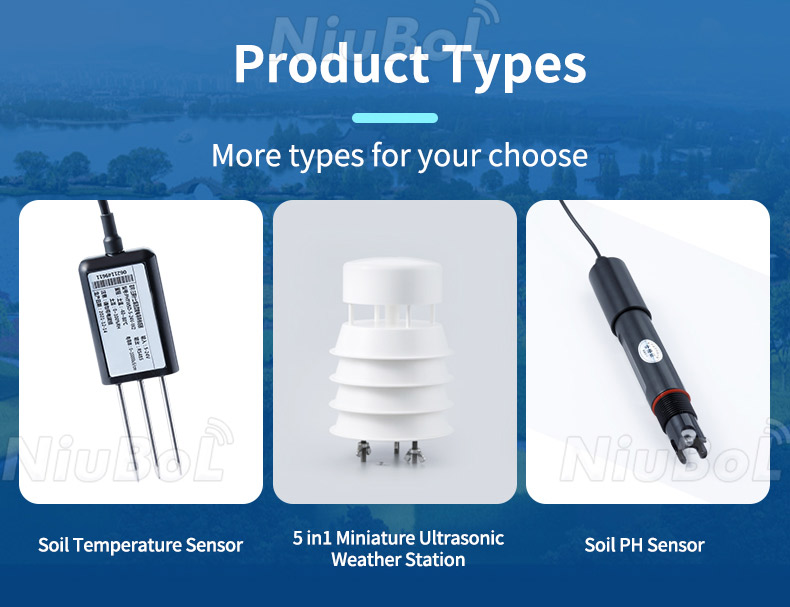
Prev:Rain gauge for weather station
Next:Pyrheliometer
Sensors & Weather Stations Catalog
Agriculture Sensors and Weather Stations Catalog-NiuBoL.pdf
Weather Stations Catalog-NiuBoL.pdf
Related recommendations
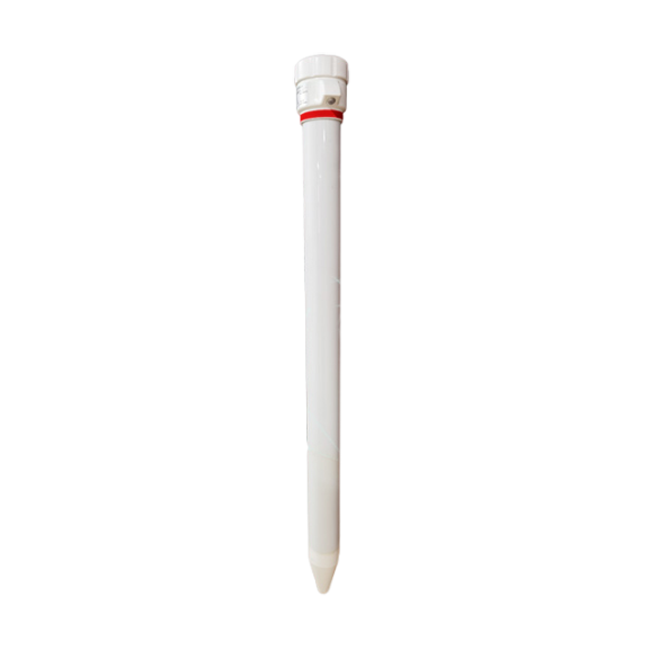 Multi-Depth Soil Sensor RS485
Multi-Depth Soil Sensor RS485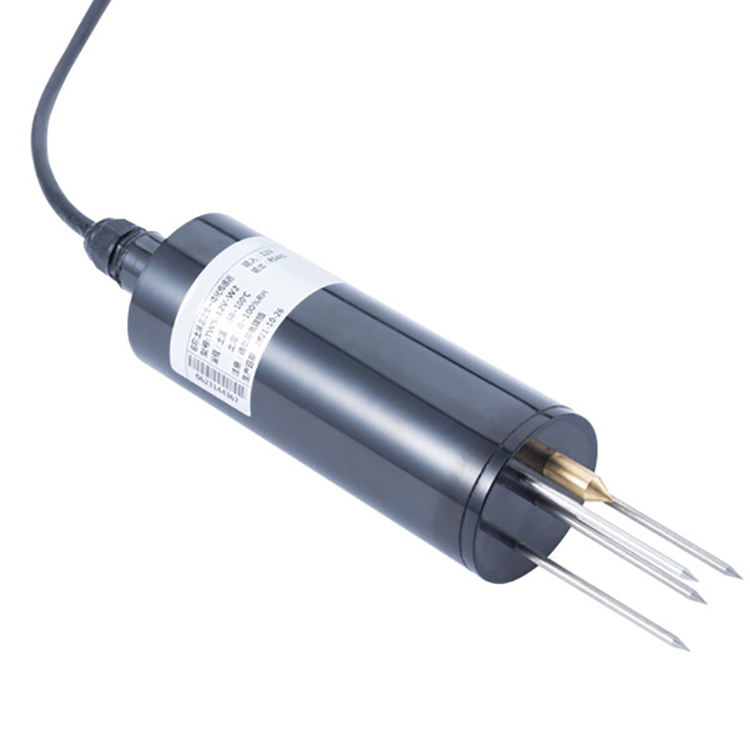 TDR Soil Moisture Sensor
TDR Soil Moisture Sensor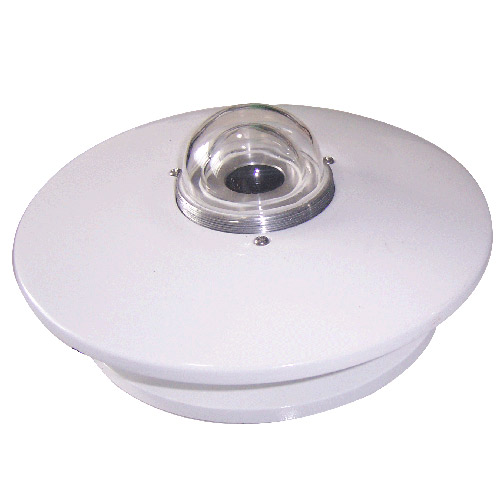 Pyranometer Solar Radiation Sensors
Pyranometer Solar Radiation Sensors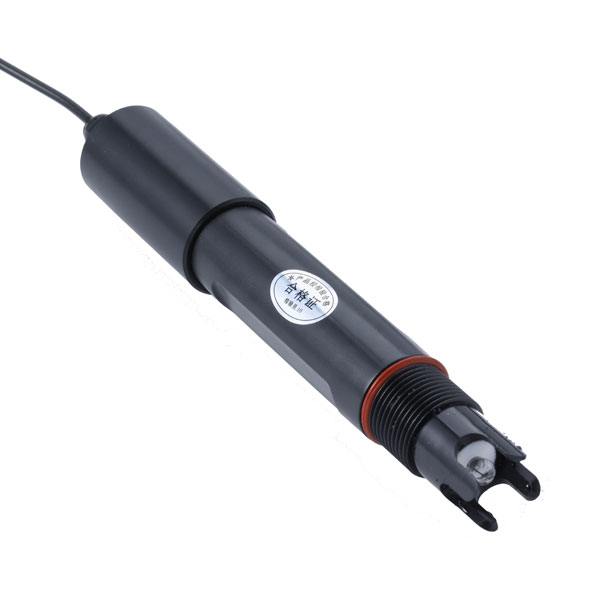 Soil ph sensor
Soil ph sensor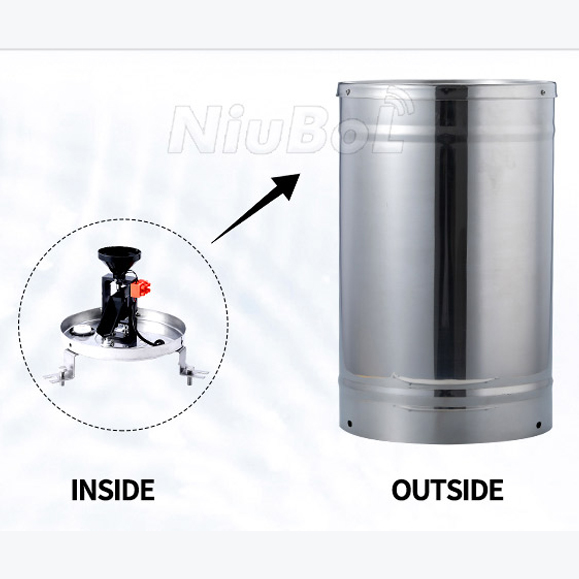 Tipping Bucket Rain Gauge
Tipping Bucket Rain Gauge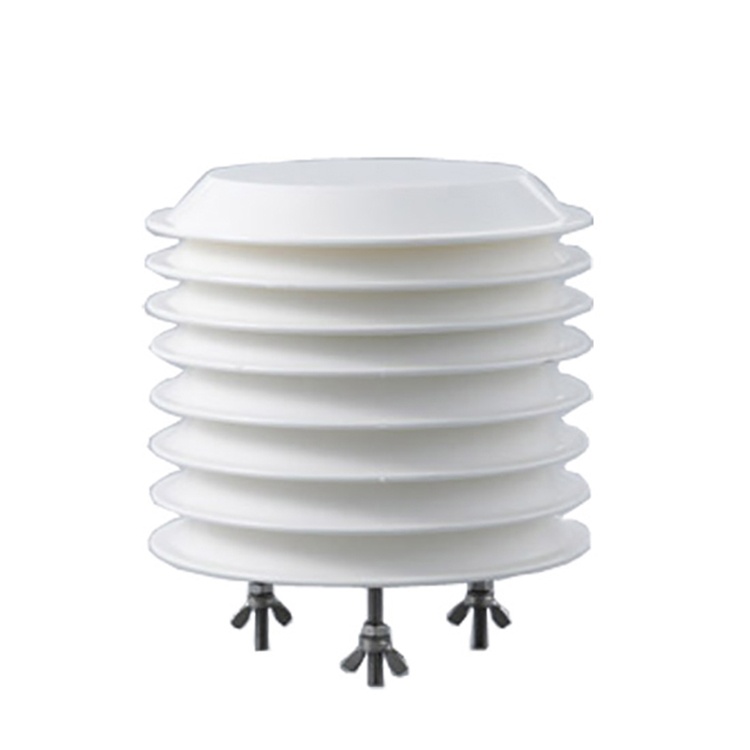 Air Temperature and Humidity Sensor
Air Temperature and Humidity Sensor
Screenshot, WhatsApp to identify the QR code
WhatsApp number:+8615367865107
(Click on WhatsApp to copy and add friends)
